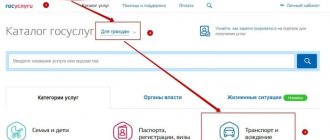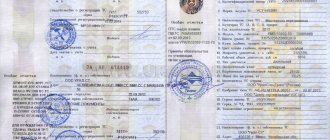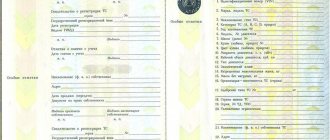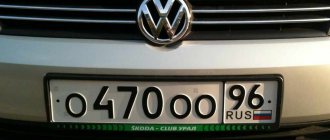Content
- How does a car end up as collateral?
- What happens if you buy a mortgaged car?
- Real stories about buying a pawn car
- How to check a car for collateral
In order not to confuse the concepts, let’s figure out how a secured car differs from a credit car.
- What does pledged car mean? This broad definition includes: both the presence of a car on a car loan and its performance as a guarantee for a loan from a bank or other individuals and individuals.
- Credit vehicles are purchased on credit from banks and intermediary institutions. It may be collateral at the same time, or it may not, if the borrower offered other property.
What to consider when buying a used car
Unscrupulous sellers often do not notify the buyer that the car is pledged. To avoid an unpleasant situation, a citizen must make sure that there are no encumbrances. You can do this in two ways:
- Request from the seller documents confirming the absence of debt to the financial institution.
- Ask to provide the original PTS. If the car was purchased on credit, then the owner will only have a copy of this document. The borrower receives the original only after he has paid the bank in full.
Thus, buying a collateral car is a fairly simple procedure. To avoid pitfalls, you need to entrust the paperwork to a notary. Also, the buyer must pay the bank independently, without resorting to the intermediary of the seller.
How does a car end up as collateral?
The collateral ensures the fulfillment of obligations by the borrower. As long as he returns what he borrowed on time, the lender has no claims. However, he can go to court if the debt is overdue. Then, as compensation, the creditor takes what was pledged. So, when can a car be pledged:
- Car loan – purchasing a car on credit is a quick and simple matter. This requires a minimum of documents and time. The new car is pledged to the bank until the loan is fully repaid.
- A consumer loan involves the issuance of cash for the purchase of durable goods. Banks are developing various programs for borrowing money against car collateral.
- Private financial organizations issue loans secured by PTS. The probability of refusal is low, while the borrower continues to drive his car. The advantages of this method include efficiency and a low interest rate.
Also read: What the PTS will tell you: how buyers of used cars are deceived
The above organizations try to collect debts on their own with the help of collectors or sue. In the second case, the borrower is required by law to repay the debt with all penalties, and the collateral goes to the bailiffs. Government organizations can also sue for non-payment of debts.
Resolving issues with the traffic police
Having a car as collateral involves certain restrictions. The situation is complicated by the fact that the State Traffic Inspectorate does not have a database of credit vehicles, and therefore the buyer will not be able to find out whether the car is secured. It will not be possible to obtain such information by contacting the bank directly, because such data is confidential.
In such situations, you need to remember the following points:
- Since the traffic police does not have information that the car is under collateral, there should not be any problems with registering the car. The applicant may be refused registration only if the bank has seized the vehicle.
- If the borrower cannot repay the loan, the bank has the right to repossess the car and put it up for sale. At this stage, a third party can purchase the car by paying off the debt.
Sometimes a citizen may not know that he is purchasing a credit car. In this case, he can go to court, proving that he bought the car honestly, and the amount was paid to the seller in full. If there are papers confirming the transfer of funds, the car can remain in the buyer's ownership.
What happens if you buy a mortgaged car?
Vitaly Zaikov, expert, director of the Old City car pawnshop:
“It all depends on the situation when the car was purchased as collateral. If the new owner, during the purchase and sale transaction, obtains from a lawyer an extract from the pledge register, which will indicate that the pledge has not been registered, then the buyer may be recognized by the court as being in good faith. Depends on whether the seller has a duplicate PTS or not, and how long ago it was received. If, at the time of signing the purchase and sale agreement, the pledge was noted in the register, the buyer had the opportunity to check it, but did not check it, the purchase of a pledged car does not meet the requirements of good faith, so there is no reason to remove financial responsibility. The car will be seized.
Although the register of pledges is in the public domain, you can say in court that I went to the site and at that time there was no pledge. In judicial practice, it is customary for the buyer to “walk with his feet” to the notary and take an extract, then his actions indicate good faith.
So if the car turns out to be collateral, you need to prepare for the trial in any case. Therefore, an extract from the register of pledges is the main evidence.
When buying a car second-hand, always check it using open sources: the traffic police and the notary’s pledge database. The seller should be checked against the bailiff service; sometimes he has a “credit” debt, which should alert you. Or there may be a fine of 500 rubles, due to which the bailiffs will impose restrictions, so the car will not be re-registered by the traffic police and the issue will have to be resolved with the bailiffs.”
The Supreme Court named significant facts in disputes with the bank about terminating the mortgage on a car at the claim of the new owner
On July 21, the Judicial Collegium for Civil Cases of the Supreme Court of the Russian Federation issued a ruling in case No. 32-KG20-6-K1 on the bank’s foreclosure of a mortgaged car that had changed its owner.
In April 2013, Valery Andreyanov and Credit Europe Bank JSC entered into a loan agreement secured by a KIA Rio car. A few months later, the man sold the car to Olga Bakulina, who registered the vehicle in her name.
Since the borrower did not repay the loan on time, the bank filed a lawsuit to collect the debt under the agreement and to foreclose on the pledged property. In May 2014, the court seized the car, and two months later it collected the debt from the defendant and foreclosed on the disputed car as belonging to Andriyanov. Next, the court sent a writ of execution to foreclose on the collateral to the bank.
Subsequently, Olga Bakulina filed a lawsuit against Valery Andreyanov and the bank, demanding that the pledge of her car be stopped and it be released from seizure. In support of her claims, the woman indicated that she had owned the car since 2013 and only learned about the pledge in 2021, when she tried to sell it. According to the plaintiff, she is a bona fide purchaser, and the period for foreclosure on the car has expired.
The court of first instance granted Olga Bakulina's claim on the basis that the bank missed the deadline for submitting for execution a writ of execution to foreclose on the mortgaged property. This circumstance, the first court emphasized, is the basis for terminating the bail due to the impossibility of executing the writ of execution and canceling measures to secure the claim in the form of arrest.
Subsequently, the appeal overturned the decision of the first instance and refused to satisfy the claim under the pretext that the executive document on foreclosure on the car was received by the Federal Bailiff Service Administration for the Saratov region on September 2, 2014 and on the same day was sent for execution to the Kirov ROSP of Saratov . On September 3, this document, as noted in the appeal decision, was received by the senior bailiff, but no measures were taken to initiate enforcement proceedings.
Thus, the appeal considered, the bank promptly submitted for execution a writ of execution to foreclose on the mortgaged car, but this document was lost due to the fault of the bailiff. In this regard, the claimant is not deprived of the opportunity to apply to the court for the issuance of a duplicate of the writ of execution; therefore, there is no reason to believe that the obligation under the car pledge agreement was terminated by the impossibility of executing the court decision. Subsequently, the cassation upheld the appeal ruling.
In her cassation appeal, Olga Bakulina challenged the judicial acts of the second and third instances to the Supreme Court. Having considered the complaint, the Judicial Collegium for Civil Cases of the Supreme Court recalled that the purpose of the institution of pledge is to ensure the fulfillment of the main obligation, and the content of the right of pledge is the ability of the pledgee, in the manner prescribed by law, to foreclose on the pledged property if the debtor fails to fulfill the main obligation. At the same time, if it is impossible to foreclose on the pledged property to fulfill the obligation secured by the pledge, the latter loses its security function and is subject to termination.
As the Court explained, in the case under consideration, the legally significant and subject to establishment circumstance was the clarification of the possibility of foreclosure on the collateral owned by Olga Bakulina. However, it was not included in the subject of evidence in the case and did not receive an appropriate legal assessment. “The courts have established that the KIA Rio car was alienated by Valery Andriyanov in favor of Olga Bakulina and registered in the name of the latter on November 7, 2013, that is, before interim measures were taken in the form of seizure of the car and before foreclosure was applied to it by decision of Kirovsky District Court of Saratov dated June 6, 2014. Under such circumstances, the forced execution of this court decision regarding the foreclosure of the pledged property is impossible without resolving the issue of replacing the debtor Andriyanov with the owner of the car, Bakulina,” noted in the ruling.
The Supreme Court added that the owner of the car before the court made a decision to foreclose on the collateral was Olga Bakulina, who was not involved in the foreclosure case. The highest authority noted that the appeal court did not explore the possibility of replacing the debtor Andriyanov with Olga Bakulina when executing the court decision regarding the foreclosure of the pledged property, or the possibility of a new judicial foreclosure of this property as owned by Bakulina. In this regard, the Supreme Court canceled the judicial acts of appeal and cassation, returning the case for a new trial at the second instance.
Advisor to Justice of the Russian Federation of the third class, Chairman of the Board of the RO LOO "Association of Veterans of the Bailiff Service" Alexey Sharon noted that in the case under consideration the mistake occurred initially when the court, which made a decision to foreclose on the disputed car, did not check the fact of who was registered with it car at the traffic police station. “As a result, the last owner of the car, Olga Bakulina, was not involved in the case. This circumstance is the basis for canceling the judicial act and considering this dispute anew,” he emphasized.
According to the expert, if the judicial act is overturned, Olga Bakulina will have the right to raise her objections in court and can prove that she is a bona fide purchaser and should not be responsible for a right that she did not know and could not know about. “Otherwise, there is currently a judicial act on the foreclosure of the disputed car, and it must be seized from Bakulina and sold, the funds from the sale sent to the mortgagee - the bank. The woman can present her claims to Valery Andriyanov, who sold her the car without warning that it was pledged,” believes Alexey Sharon.
Lawyer of the Administrative Office of the Stavropol Territory Narine Airapetyan noted that one of the fundamental issues to be clarified and subsequently assessed is the question of the person from whom the disputed car, which is the subject of the pledge, was recovered. “I believe that the credit institution, the pledge holder, and the court hearing the case of foreclosure on the car committed violations, which subsequently led to the impossibility of collecting the pledged property. The impossibility of collection in this case directly depends on the statute of limitations. The violations were expressed primarily in the untimely identification and involvement of the actual copyright holder as a proper defendant,” she noted.
According to the expert, with due diligence on the part of the plaintiff and a proper approach to the consideration of a civil case on the part of the court, the current owner of the property should have been identified. “Succession in this case by virtue of Part 1 of Art. 44 of the Code of Civil Procedure would be possible at any stage of civil proceedings. Due to the fact that the transfer of ownership did not take place after the court decision to foreclose on the pledged property (but earlier), succession at the stage of enforcement proceedings is impossible. Agreeing with the court, I believe that the key issue that the appellate court will be obliged to consider will be the question of the possibility of a new judicial foreclosure on this property as owned by Bakulina. At the same time, it should be noted that the court of first instance, despite the positive decision, also did not investigate this issue,” noted Narine Hayrapetyan.
Ilya Prokofiev, lawyer for MCA Centryurservice, believes that the conclusions of the Supreme Court are fully consistent with established judicial practice. “By canceling the rulings of appeal and cassation, the Supreme Court of the Russian Federation pointed out to the courts specific rules of substantive law that they did not apply when considering the case, which resulted in the issuance of unfounded judicial acts. In fact, the key mistake of the courts was expressed in the incomplete consideration of the case and the failure to clarify all the significant circumstances that should have been established. Thus, the commented ruling of the Supreme Court will once again remind lower courts of the need for a full and comprehensive consideration of cases,” he noted.
Real stories about buying a pawn car
Alexander Makarov, auto expert:
“The pledgor can take back the car if the pledgor stops fulfilling his payment obligations. The situation is serious - the new owner in this case risks being left without everything. And there are plenty of examples. A friend of mine had a case. He bought a car for 450 thousand rubles and became its third owner. I didn't check the car when I bought it. A year later, bailiffs showed up and explained that the car was the property of the bank. The first owner stopped paying the loan, and the bailiffs decided to take the car. A friend had to pay someone else’s debt of 200 thousand rubles in order to keep his car. Later it turned out that the previous owner did not even know that the vehicle was pledged.”











